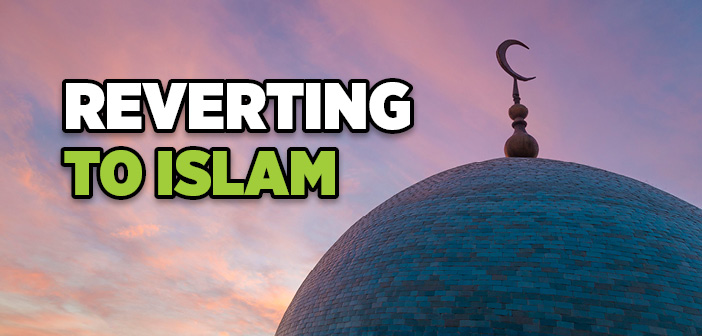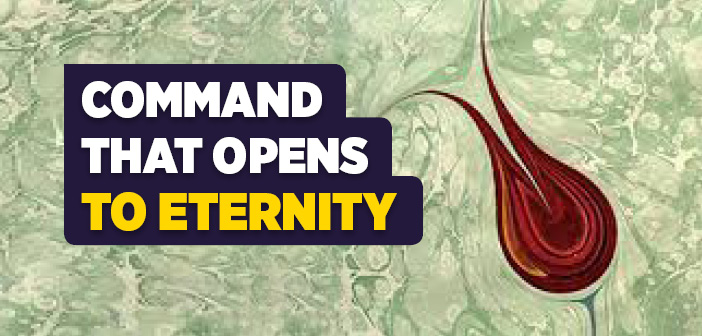This life and the next….
The sole aim of all activities geared to advising people with the truth, is to earn the bliss of the hereafter.
Getting carried away by worldly and egoistic desires and neglecting or abandoning these activities come with a heavy responsibility in both this life and the next.
In fact;
In the Battle of Uhud, the Blessed Prophet (SAW) stationed 50 archers on the strategic Hill of Aynayn, commanding them not to leave their posts under any circumstances.
Yet, as the battle wore on, after seeing Muslim soldiers gain the upper hand and chase the fleeing enemy, some archers exclaimed:
“Spoils, spoils!” Ignoring the warnings of their commander Abdullah ibn Jubayr (RA), they ran off to collect war spoils. Only eight archers were left on the hill. At that point, the commander of the pagan cavalry, Khalid ibn Walid noticed the weakness and led his horsemen on an attack on the pass, encircling the Muslims from behind. The fleeing pagans realised that the tide had begun to turn and returned to the battlefield, inflicting heavy losses on Muslims who were now caught in a crossfire.
As a result of disobeying the Prophet’s (SAW) command and inclining towards the riches of the world, an imminent victory suddenly turned into a crushing defeat that rained fire on many households.
The Qur’an says:
“Allah certainly fulfilled His promise when you were killing the enemy with His permission. But after Allah had shown you that which you desired (victory), a time came when you lost courage and fell into dispute about the Prophet’s order and disobeyed.
- Among you were some who desired the world
- And some who desired the hereafter.
Then to test you, Allah held you back from defeating them. And He has already forgiven you. Allah is ever gracious towards the believers.” (Al-i Imran, 3:152)
In the above verse, the Almighty warns the archers who deserted their posts with the words, “…among you were some who desired the world”, while praising the others who remained and were ultimately martyred, with the words, “…and some who desired the hereafter.”
How sternly does the below verse warn those who, enslaved to their ambition and jealousy, abandon the duties of the afterlife in pursuit of the fleeting pleasures of the world:
“He has worked but for nothing!” (Al-Ghashiyah, 88:3)
The Prophet (SAW) says:
“Whoever’s concern is the afterlife (and being a true servant to the Almighty) Allah will place wealth in his heart, save him from the disarray of his affairs; and the world will readily come to him and be at his service.
Whoever’s concern is the world (and its passing desires), Allah will place poverty right before his eyes (for which reason he will never be satisfied); and he will wear himself out, even though he will only receive no more than what is predestined for him.” (Tirmizi, Qiyamah, 30/2465)
The truths emphasised by the Qur’an and the Prophet (SAW) are valid until the day of judgment.
One must never forget that;
The Battle of Uhud is a striking lesson for those who forsake serving Islam and lean towards the world.
The companions learnt that lesson exceptionally well. Immediately after Uhud, the Prophet (SAW) summoned them to pursue the enemy. He wanted to conduct the pursuit to prevent the pagans from launching another attack, supposing that the Muslims were now vulnerable.
Meanwhile;
Abdullah ibn Sahl (RA) and his brother Rafi (RA) had fought alongside the Prophet (SAW) at Uhud and had just returned to Medina wounded.
They said, “By Allah, we do not have a ride and our injuries are heavy. But how can we possibly miss the chance to join a campaign led by Allah’s Messenger?”, and immediately set out. Along the way, the one carrying lesser injuries helped the other walk and, at times, even carried him on his back. Despite their ordeal, they did not leave the Prophet’s (SAW) side. (Ibn Hisham, III, 53) The two wounded companions -one of them heavily- reached Hamra al-Asad holding on to one another, just so they would not remain back from the Prophet’s (SAW) call. After all, it is said that:
“A person is with the one whom he loves.” (Bukhari, Adab, 96)
This is also one of the most vital and primal qualities of Muslims. The most potent proofs are the below words of the Qur’an:
“The faithful men and women are comreades of one another. They enjoin what is right and prevent each other from wrong; and maintain prayer, give alms and obey Allah and His Messenger. It is they whom Allah will encompass with His mercy. Allah is certainly the all-mighty, all-wise.” (Al-Tawbah, 9:71)
“The penitent, devout who are praiseful of Allah and live on earth like wayfarers, who bow and prostrate in prayer, enjoin what is right and forbid what is evil and observe the boundaries of Allah – give good news to those believers!” (Al-Tawbah, 9:112)
The duties of conveying Islam and promoting the good are also the essence of what was once the mark of our ancestors, which was to strive to raise the name of Allah (ilay-i kelimetullah) and bring order to the world (nizam-i alem). The verse below inspires Muslims to feel the responsible for the events taking place around them:
“They are those who, if We give them authority in the land, establish prayer, give alms, enjoin what is right and forbid what is wrong. And to Allah does the outcome of all events lead.” (Al-Hajj, 22:41)
Source: BEING A GUIDING LIGHT, Osman Nuri Topbas, Erkam Publications
 Source: BEING A GUIDING LIGHT, Osman Nuri Topbas, Erkam Publications
Source: BEING A GUIDING LIGHT, Osman Nuri Topbas, Erkam Publications




